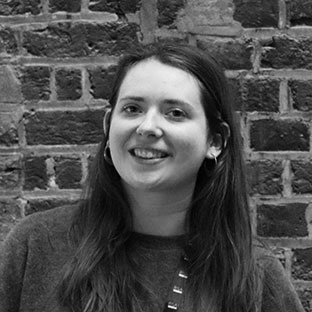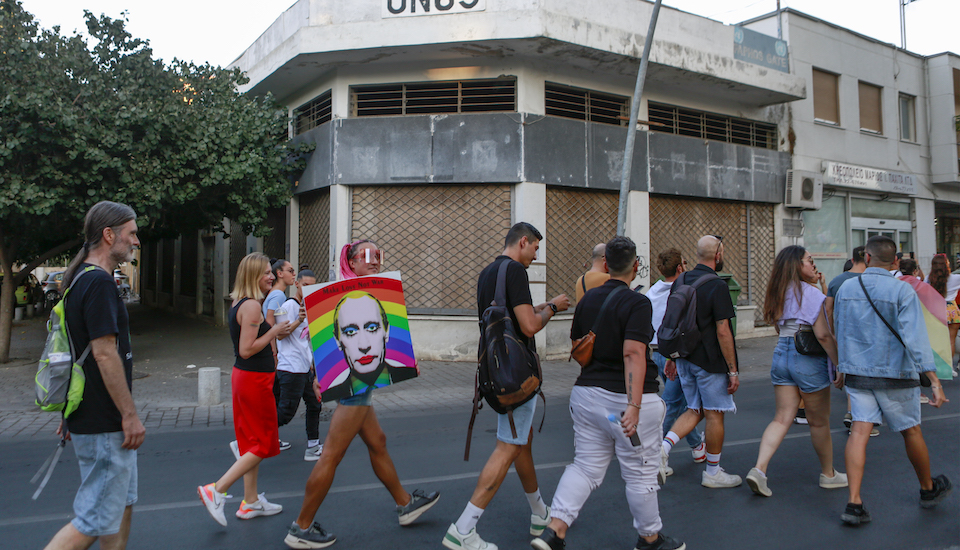The promotion of local wellbeing centred around individuals and communities will mean rethinking our provision of many overlapping services.
The RSA is exploring what it means for our collective wellbeing to motivate us to design a better, more equitable future. In short, we are thinking about how we might organise ourselves and our systems in a way that supports people to lead a good life, through their health, work, networks of support, economic security, housing, community and more. To understand what contributes to a good life means acknowledging a self-defined interpretation of wellbeing that is necessarily broad. My wellbeing, for example, is derived from my circumstances, and while the areas of my life that contribute to it might overlap with yours, the specifics will differ.
While few might disagree with the sentiment of supporting the wellbeing of people and places, in many instances it is a priority that falls behind a complex web of financial and institution-specific incentives. And at its worst, our current system meets this complexity by setting up the ability to attain good wellbeing as something that only the individual can achieve themselves, if they just spend enough time, or energy, or money. It commercialises and outsources what could be a collectively supported and maintained experience if we designed our society to work towards it.

Within this scenario, personal resilience and responsibility become the weapons of choice against poor wellbeing, leaving an absence of systemic support and coordination. Without coordinated and active design towards improved wellbeing, and with this absence filled with individual responsibility, we see instead that inequalities within and between places are allowed to emerge and proliferate.
But, as the 2020 Greater Manchester Independent Inequalities Commission concluded, there is a necessity for “equality and wellbeing goals to be put at the heart of public policy and across the private and voluntary sectors”. As we look to our emergence from the Covid-19 pandemic, we need a system where the state, communities and those who live in them participate and collaborate at a local level towards a shared aim of collective and individual wellbeing.
This importance of working locally was put under the spotlight in the early days of the pandemic. Mutual aid groups, local supply chains for personal protective equipment and pivoting community groups brought to the fore the benefits we already knew about working in small geographies. But much of this new activity operated in the context of an emergency response and relied on individuals or communities taking on additional labour. What would it mean to take a locally led and sustainable approach to our systems, services and support by design? And what value does this hold for our wellbeing?
By local, we tend to mean place under geographical parameters, but we should acknowledge that this brings a degree of the subjective. The local of one person might differ to that of a neighbour, while the administrative boundaries are likely to differ even further again. Boundaries of local authorities overlap rather than overlay with the boundaries of constituencies, or clinical commissioning groups. With no fixed conception of a locality, it might feel complex to use this as the guiding scaffolding for our society.
But this complexity is not insurmountable if we change the lens we have on how decisions are made about local areas. To navigate between the scale at which people live their lives and our geographical political landscape, we might use a person-centred approach as our compass. Being flexible about geography, boundary or coalition allows us to meet the needs of individuals on their own terms. It is here where our contention that participation – as a process and as a principle – can help us to navigate the complexity that comes into play.
Centring the experience, ambition and challenges of residents in local places, and drawing collaboration and shared purpose between the services that support them, require a participatory approach to defining what both the ‘local’ and ‘wellbeing’ means to residents. Without this driving ethos, we continue to use the idea of local as an administrative function rather than an actor in its own right.
The good news is that, although this is never going to be easy, currently there is a huge opportunity to think locally and be guided by individual and collective wellbeing. We are at the intersection of a number of shifts in our policy landscape that, together, could set us up for a moment of real change across our personal, collective and planetary health.
There is a latent opportunity in the levelling up agenda. Though loosely defined – in Boris Johnson’s Queen’s Speech in May 2021, the commitment was to levelling up “opportunities across all parts of the United Kingdom, supporting jobs, businesses and economic growth and addressing the impact of the pandemic on public services” – the government’s headline policy ambition has potential to advance a wellbeing agenda. But to work, the approach must be tailored and local to ensure that residents genuinely see improvement that will support their wellbeing.
For communities identified for levelling up, the economic, social and political will inevitably bleed into each other. Yes, more infrastructure is needed in these areas, and high streets may be a necessary focus, but we also need to consider what changes local people want to see. Without such a consideration, any support will be superficial and unsustainable.
It is listening to these voices that will ensure that communities feel the benefit of levelling up, and that the experience is not just seen through the metrics that the government chooses to measure. The current infrastructure associated with levelling up quite clearly risks going in the other direction; in Stocksbridge, for example, the levelling up fund board included the local MP, her husband and his business partner. Concentrating power in this way actively undermines the ambitions of government.
Levelling up is not the only agenda currently speaking to our local systems. The Department of Health and Social Care White Paper establishes Integrated Care Systems (ICSs), a new infrastructure, which changes the geographical boundaries around our health and social care system and actively encourages collaboration between services within the sector and across related local anchors. With local collaboration a specific part of the remit of ICSs, getting this right from the start might set up a local anchor for our health and wellbeing.
What are the implications?
This approach will, of course, require a complete reframing of how we manage, commission and fund our local services. The establishment of the combined authorities and mayoral positions is one step towards devolution, but we need to continue to consider increasing the power of local and hyper-local institutions and communities. The levelling up agenda speaks directly to this ambition but, as yet, does not let go of the centralised power to make it a reality.
In July of this year, Boris Johnson alluded to a county-level devolution to improve local services but called for leaders to “come to” government with a vision. The radical redistribution of power needed will never stem from such a case-by-case, centrally assessed basis, especially when political motivations are at play. Instead, such an approach will bear out further inequalities within and between places, where local areas with fewer resources or less political capital to engage with central government are left unsupported. To follow through on such a promise, we need greater devolution by default.
A more systemic redesign could overcome the limited nature of funding mechanisms between local and national government. As the RSA’s newly appointed Chief Executive, Andy Haldane, explored in his recent Community Power Lecture for the Local Trust, “competitively-bid central pots of finite, short-termish money tend to lock-in the advantages of those who already have resources.”
The Institute for Innovation and Public Purpose argues that mission-led vision and systems might help us to address the major challenges of our time. Missions – which the institute defines as “concrete targets within a challenge that act as frames and stimuli for innovation” – in this instance frame a complex, ambitious change. For example, applying a mission-led approach to innovation-led economic growth. Setting our collective wellbeing as a mission for local systems might be one way to practically move towards true levelling up, with participatory approaches helping to define the detail of what will support residents’ wellbeing.
In addition, there is a pressing need for residents to be more meaningfully engaged in the decisions that affect them. The Institute for Community Studies at the Young Foundation recently published “Why don’t they ask us?”, an exploration into the role of communities in levelling up, in which a key finding is that “the majority of ‘macro funds’ and economic interventions over the last two decades have not involved communities in a meaningful nor sustainable way.” The risk is that this disempowers the very people who these funds or services seek to serve and creates a misdirection of resources as the geographical framing is too broad for clear participation and targeted delivery.
Pockets of innovation, best practice and redistributive participation are happening across the UK but these are often reliant on the energy of individuals in a professional, and personal, capacity to make such a change. To move towards a genuine shift in power and a reframing of the priorities of our society we need to join up innovations, learn from each other and understand what role different levels of the system might play.
Such an approach could learn from innovation happening now. In Barking and Dagenham, the community-led Every One Every Day programme spans over 24,000 opportunities for participation and 150 neighbourhood projects. Its aim is to “make everyday life better for everyone”, but their non-prescriptive, participatory approach means that the work spans what is important to residents. Their impact evaluation found that a key outcome of the process was linked to improved wellbeing; eight in 10 participants reported increased confidence and 90% reported enjoyment and happiness.
More generally, asset-based models of community services and in particular health and care can – if supported – ensure we lead from within communities. For example, Think Local Act Personal is based on the ethos that local places and the people that live within them can achieve more together when they share an asset-based mindset, focused on the potential of what places could, and do, produce with the people involved or affected.
In Northern Ireland, the 2016 local-authority-led Belfast Conversation asked residents what they wanted for the future of the city and created an agenda focused on 2035 based on their input. Residents wanted for “everyone in Belfast [to benefit] from a thriving and prosperous economy” and for “everyone in Belfast [to experience] good health and wellbeing” as two of five key priorities. This conversation will be repeated this year to ensure that resident voices continue to be heard.
In Wales, it is a national policy that encourages the creation of participatory approaches focused on wellbeing. The Wellbeing of Future Generations (Wales) Act 2015 makes a legal obligation of public bodies to embed the “social, cultural, environmental and economic well-being” of those they serve as a driving force. Within this macro framework, local community anchor organisations are seen as critical to supporting communities. Enabling communities to thrive includes embedding meaningful participation where public bodies create the right conditions for this to lead to real change.
We can learn from examples like these – and the many other initiatives operating at the community, local and national level – how an inclusive and community-led approach to wellbeing might be supported. They demonstrate that trusting communities and individuals with leadership and ensuring that system-wide incentives are aligned with a wellbeing agenda and resources can embed engagement over the long term, not just for a snapshot in time.
What is the RSA doing?
The RSA’s Living Change Approach is based on the belief that it is not possible to address systemic challenges at the level of single interventions or from single actors. Instead, central to any successful story of change is a clear ambition that is supported by those for whom it seeks to drive improvement, and which drives alignment across the local and national system of influence.
The RSA is committed to a world where everyone can participate in creating a better future, and we have been exploring how we might contribute towards such a participatory future that centres on collective wellbeing. Our ambition is for local systems to be designed to actively support individual and collective wellbeing in places. This requires us to understand how systems work, what the incentives across different actors are and, crucially, what the wellbeing needs and aspirations of residents are.
The RSA is by no means the first to arrive at a wellbeing agenda. In recent years there has been a swell of activity around this topic, with a number of organisations – the Wellbeing Economy Alliance, the Centre for Thriving Places, What Works Wellbeing and more – articulating what a wellbeing-led economy or policy landscape might look like. We hope to bring a contribution that unites participation and place to support a vision of wellbeing driving the systems that surround us.
Our starting point is to gain knowledge about this area, testing ideas and interventions that might shift the dial towards participatory, wellbeing-led systems in local places. We are approaching this through three lines of enquiry: What are the wellbeing needs in different places? What do residents want to see change? And how can local areas become genuinely participatory to see such a change happen?
The RSA has embarked on this journey through a range of projects. First, if we are to meaningfully set wellbeing as a local ambition we need to understand what this means in context. Our broad definition means that there is no one route to wellbeing but – by understanding the experiences of residents, the context of the assets and opportunities in local areas, and how local systems operate – we can start to create a picture of what change is needed.
Crucially, we need to understand the drivers of inequality and how these shape people’s ability to lead a good life. Only by understanding the roots of inequality can we work towards an equitable future. For example, in our work supported by the Health Foundation, we are exploring the role of economic security in the future health of the next generation. Understanding the links between economic circumstances and physical and mental health and wellbeing will be critical to enabling the next generation to lead a good life.
To this end, later this year the RSA will be running place-based research enquiries in four locations across the UK to understand what drives young people’s sense of economic security and wellbeing, and what future they want to see for themselves and their local area. Our aim is to ensure that the voices of young people are heard by the key actors in the local area.
We will build on this learning in our second line of enquiry around what residents want to see change and how they get a meaningful say.
Later this year, the RSA will publish its findings from a neighbourhood assembly it facilitated in Nechells, Birmingham. Supported by the Oak Foundation, this brought together a diverse group of residents over a series of deliberative sessions to understand what role their housing and neighbourhood plays in their ability to lead a good life, co-designing with them ideas for policy and practice that they want to see done differently.
This project represents an important shift in the move to genuinely participatory places, by starting the conversation with people – in a neighbourhood that is often overlooked – rather than policymakers. We have purposefully brought a broad and malleable question to the group: “What do you need from your home and your neighbourhood, now and in the future, for everyone in Nechells to lead a good life?” This offers a contrast to a consultative or ‘light-touch’ approach to participation that is often conducted with a predetermined issue or solution and seeks only feedback.
Of course the RSA is just one organisation and, alone, it cannot bring about a more participatory future. However, our work will provide important evidence and, we hope, inspiration, helping to drive new inclusive ways of doing things. To support local places to adopt a more participatory approach, our Transitions to Participatory Democracy handbook considers the complexity and scale of the challenge and offers practical examples of how different participatory approaches can be embedded and tailored to local needs.
Central to these examples and suggestions are a need to equalise participation opportunities, including compensating people for their time, supporting specific requirements and using technological participatory methods, along with support and resources to enable participation in this way. Doing this well requires investment of time and money and the divestment of power. But if we successfully and equitably move towards participatory places, everyone’s wellbeing will benefit.
This article first appeared in the RSA Journal Issue 3 2021
Related articles
-
Young at heart
Journal
Jonathan Prosser
Becoming a nation with children at its centre in 10 courageous steps.
-
Open RSA knowledge standards
Blog
Alessandra Tombazzi Tom Kenyon
After investigating ‘knowledge commons’, we're introducing our open RSA standards and what they mean for our practice, products and processes.
-
Worlds apart
Comment
Frank Gaffikin
We are at an inflexion point as a species with an increasing need for collaborative responses to the global crises we face.




Join the discussion
Comments
Please login to post a comment or reply
Don't have an account? Click here to register.
'The RSA is committed to a world where everyone can participate in creating a better future, and we have been exploring how we might contribute towards such a participatory future that centres on collective wellbeing. Our ambition is for local systems to be designed to actively support individual and collective wellbeing in places. This requires us to understand how systems work, what the incentives across different actors are and, crucially, what the wellbeing needs and aspirations of residents are'. All of this is all very well and far as it goes; but it won't effect the slightest overall shift without meaningful decentralisation of power, not merely to existing local government structures, so sorely under resourced, but to localities (20-minute neighbourhoods, anyone?), communities - even parishes. And you know that 'levelling up' bad faith policies are not intended or designed to go anywhere near that.